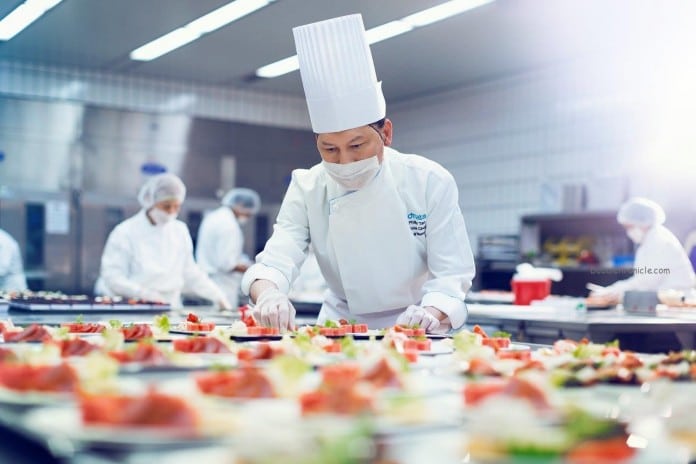
With social distancing rules in place, and restrictions on eating out to stop the spread of COVID-19, food retailers have been forced to reinvent their business models to maintain cash flow.
From restaurant kitchens turning into bakeries, to bars and liquor stores home delivering drinks packages, and takeaways turning to food apps, many are stepping up in how they connect with their customers and tap into new demand, boosting their readiness for future trends.
“It’s a whole new world out there,” says Abigail Campion, placemaking and customer experience manager in Australia, for JLL. “For retailers, as well as owners of retail precincts, being found on the right digital platforms, understanding what sells online, and getting that message across effectively, are really important strategies.”
In Australia there are about 60,000 venues affected by measures to prevent people gathering, which include closing food courts, and allowing only takeaway or delivery options for cafes, bars and restaurants. In many cities across the world, venues have shut altogether.
The speed of the outbreak has forced retailers and landlords to think quickly about how to adapt to these new norms, when the sector was already subject to evolutionary pressures including e-commerce, increased urban living and changing shopping and social behaviours.
“The number one thing affected food retailers need to do is pivot to some sort of takeaway and delivery model,” says Suzee Brain, director and co-founder of retail consultancy Brain & Poulter. “There has been a cohort of food and beverage operators who have been well on top of this for some time, but for many it’s brand new territory they’re exploring and there’s a whole bunch of confusion about where to start and how to get it going.”
Necessity leads to invention
Around the world, there are pockets of quick and inspired thinking. With licencing restrictions relaxed to allow bars to deliver alcohol, Sydney bar Dulcie’s have put together a ‘Quarantini-hour’ pack, including glasses for hire, and a link to the bar’s playlist.
In Melbourne, family-owned and operated snack and refreshment bar Theodore’s has morphed into Ted’s Grocer, selling bread, coffee and deli goods, as well as take-home meals.
In London, the healthy meal delivery company and deli chain Detox Kitchen is working alongside its produce supplier to create food boxes for consumers with goods usually sold to restaurants, such as vegetables, fruit, eggs and dry ingredients.
For many retailers within food courts and other types of retail precincts, COVID-19 has opened up new discussions with their landlord about their online presence, says Campion.
“At the most basic level we’re working with landlords to do digital health checks, where we look at each of their individual retailers and make sure that if we Google, for example, ‘Asian food delivery near me’, they are being found, and that they are connected to food delivery services,” she says.
“We’re also making sure shopping centre websites and social media accounts are listing all these details and that their profile and reach is being leveraged to support their retailers. It’s not just about writing a ‘we are still open’ post and hoping for the best. There’s a lot of strategy and some really techy stuff that goes into good social media.”
To support retailers and landlord through this period it refers to as ‘business unusual’, Brain and Poulter has created a ‘triage package’ for retailers including best practice guidelines for takeaway and delivery services, as well as cost management advice.
 Globally, other platforms are emerging to support retailers, including in Singapore, where DBS bank is collaborating with government agencies Infocomm Media Development Authority, and Enterprise Singapore, as well as technology startups Oddle and FirstCom, to help businesses set up an online food ordering site within three days.
Globally, other platforms are emerging to support retailers, including in Singapore, where DBS bank is collaborating with government agencies Infocomm Media Development Authority, and Enterprise Singapore, as well as technology startups Oddle and FirstCom, to help businesses set up an online food ordering site within three days.
While these might be necessary practices right now, they are also necessary for keeping retailers relevant in the future, Brain says.
“When we come out of this there is going to be a boom in dining out because by being housebound we’ll all have been reminded how important physical human connection is. It’s exactly the reason landlords have already done so much work in creating spaces for that to happen.
“But the convenience of having food delivered is going to be a conflict that needs to be dealt with. New habits will form that need to be embraced by retail precincts so that business doesn’t get lost to a dark kitchen in the future.”





































